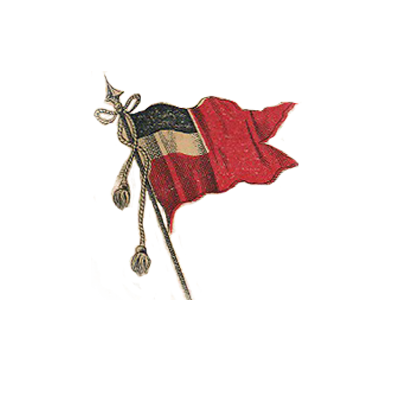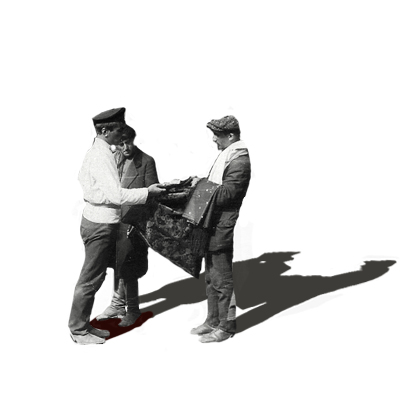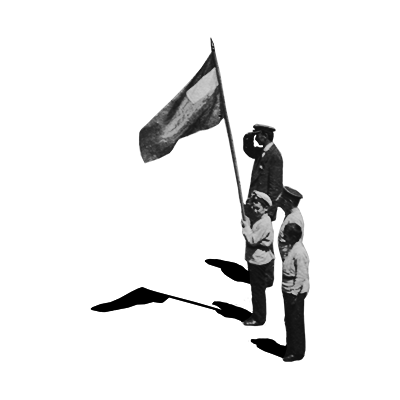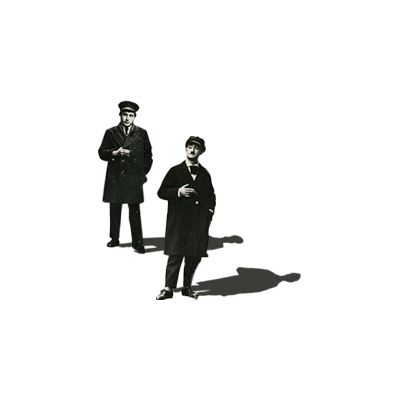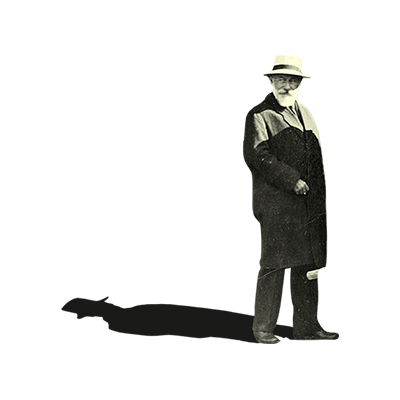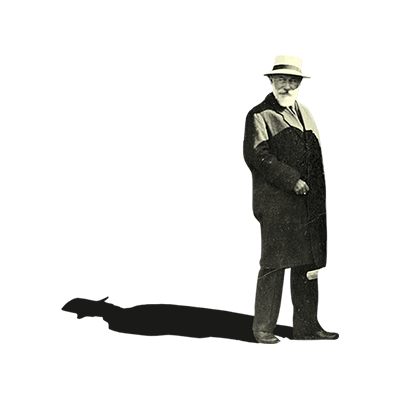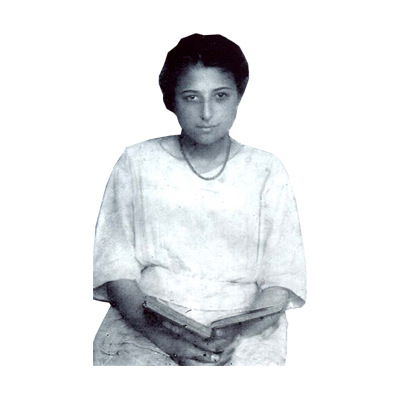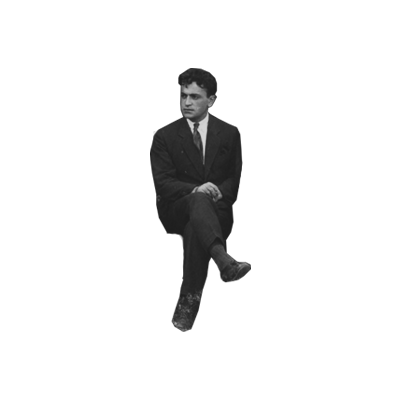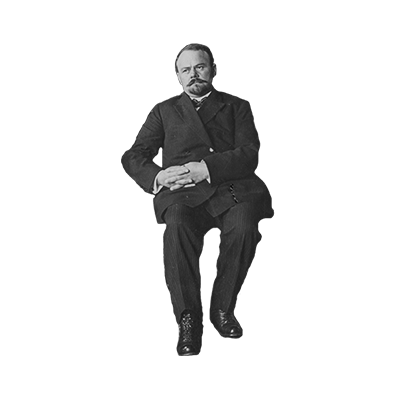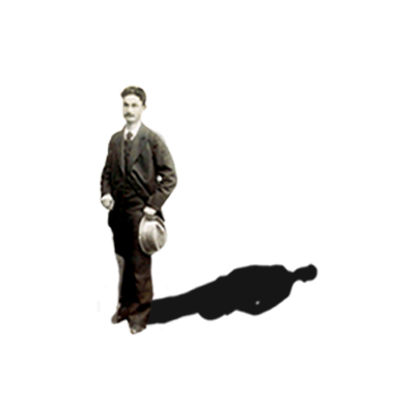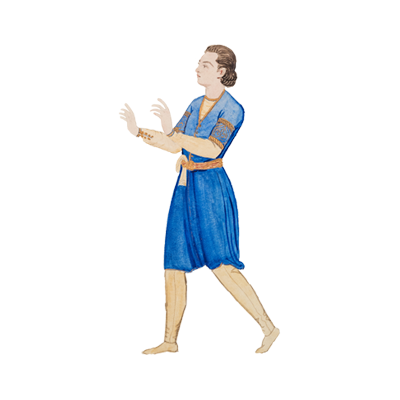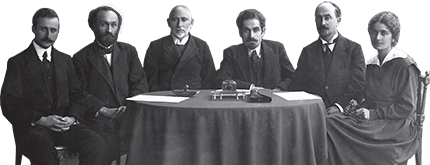
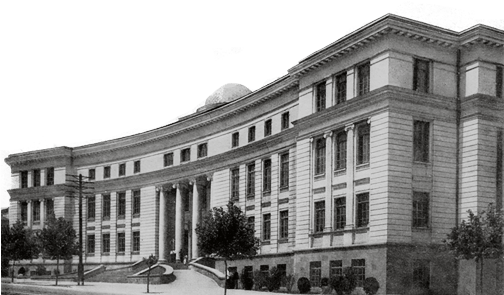


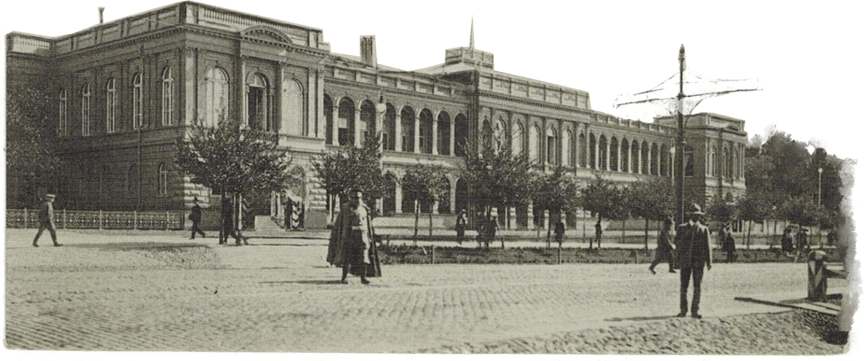
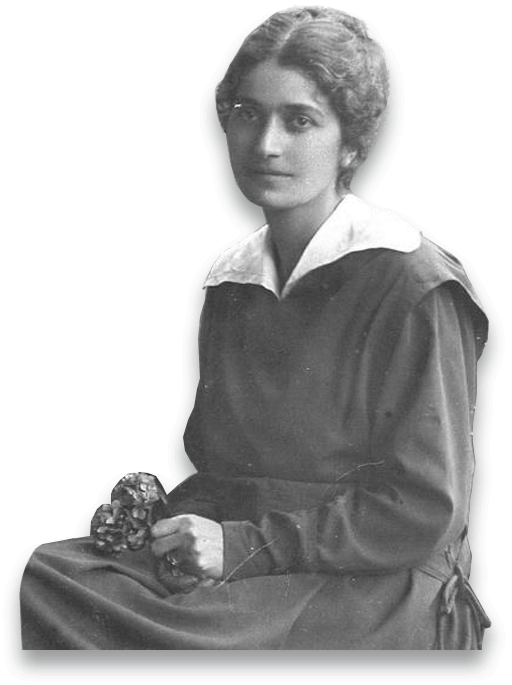

Christine SharashidzeChristine Sharashidze
Pedagogue, member of the constituent assemblyPedagogue, member of the constituent assembly
1887-19731887-1973
Biography
Kristine (Chito) Sharashidze was born on August 2, 1887 in the village of Bakhvi. Her parents - Nina Kikodze and Gigo Sharashidze were public teachers. Her family suffered from material problems, but they handle with these problems together. Initially, Kristine studied at school of village Bakhvi and then at St. Nino Women's Gymnasium in Kutaisi. In 1904, as she was an organizer of pupils revolutionary movement, was considered as a politically unreliable pupil and was expelled from the gymnasium. This fact speaks well on her character and rebel soul. Just at the age of 17, Kristine mobilized forces against the system exactly with this above mentioned movement and was able to gather round like-minded people.Christine Sharashidze
Pedagogue, member of the constituent assembly
1889-1973
Kristine (Chito) Sharashidze was born on August 2, 1887 in the village of Bakhvi. Her parents - Nina Kikodze and Gigo Sharashidze were public teachers. Her family suffered from material problems, but they handle with these problems together. Initially, Kristine studied at school of village Bakhvi and then at St. Nino Women's Gymnasium in Kutaisi. In 1904, as she was an organizer of pupils revolutionary movement, was considered as a politically unreliable pupil and was expelled from the gymnasium. This fact speaks well on her character and rebel soul. Just at the age of 17, Kristine mobilized forces against the system exactly with this above mentioned movement and was able to gather round like-minded people. She notes that, during that period, she was inspired with revolutionary ideas and certificate or any other official document seemed to be superfluous. However, a year later with respect and warship of her mother, Kristine renewed her studies at Gymnasium and even graduated it. Afterward, with the help of her parents she moved to Tbilisi. Chito did not have many friends. As her sister’s grand-daughter Nina Kartsivadze states, she did not use to talk much at home, her friend was a paper as she was interested in writing. According to her, Kristine had western opinions. Kristine Sharashidze, like her parents, led pedagogical activities. In 1907-1923, she taught Georgian language and literature in upper classes of Kutaisi and Tbilisi secondary schools. In the following years she was reading lectures on public teachers’ courses. At the same time, in 1916-1921, Kristine was a member of the editorial board of "Jejili", in 1917, she was elected as a member of the "Society for spreading the literacy among Georgians”. In the same years, she becomes a co-founder of Georgian University Founding Society. Being a teacher was a great responsibility for her. From personal records, it is clear that she was a very humble person, constantly doubting in herself and thought that she had a lot to learn to reach her own purposes. Therefore, she often complained about herself and constantly suffered from inner dissatisfaction. In a number of records, it is often said that she was often given to self-mortification and called herself selfish and frivolous. "How tortures me even my microscopic insufficiency!", "I wish I would die, not to see my frailty with my own eyes," said a woman who played one of the biggest and prominent role in the recent history of Georgia. It is noteworthy, that at one point, strict and confident Kristine was very nervous during every public speech. Despite such a rebellious spirit, Kristine was a peace-loving and a true diplomat. This is clearly seen from one of her memories, when she settled the conflict with Dashnaks and their opponents with her characteristic, diplomatic and bold speech. During the membership of so-called "pilots’ unit," Kristine, who was enthralled with the great desire to establish peace, with the rest of the members of the unit confronted the conflict between Dashnak officer army and “Enemy territory ”. Chito addressed to adjutant of Vorontsov-Dashnak and told him that such behavior of the government army would not establish peace and verbal negotiation and care for wounded people were necessary, that would only be possible if the military actions would be stopped. Kristine asked to the adjutant of the viceroy to order ceasefire and the latter agreed. In her recordings, she recalls another interesting story from that period. During one of the disarrangement, her elder brother – Shalva told Kristina, that she had to enter into the meeting and explain what was going on in the streets. Kristine emotionally expressed the impressions of that day in presence of 30 people. At that night she heard what Bolsheviks told about her story: "Do you really think that I believed even one word of that nervous lady?" Kristine was distinguished with an exceptional fearless and courage. She raised the voice thoughtlessly against incredibly vicious system and was saying directly what she was thinking. Her words were like bullets and she targeted them even when the real bullets were whistling by her ears. On March 12, 1919, Kristine was one of the first Georgian MPs, she became a member of the constituent assembly of the Democratic Republic of Georgia. She was in the Social Democratic Party. Kristine was also the junior secretary of the Presidium of the Constituent Assembly and a member of the Library, Editorial and Public Education Commissions. Eleanora-Ter- Parsegova-Makhviladze, Minadora Toroshelidze, Ana (Olga) Sologashvili and Elisabeth (Liza) Nakashidze-Bolkvadze daughter of Joseph became the members of the constituent assembly along with Kristine. All of them, like Kristine, were the members of the Social-Democratic (Menshevik) Party. For the first time, Chito Sharashidze was arrested in Ozurgeti for several days in August 1921 after the Sovietization of Georgia. In February 1922, Georgian SSR special commission launched the detention of leaders of anti-soviet parties and active members in order to prevent anti-sabotage demonstrations during the celebration of the 1 year anniversary of Georgia's occupation. Among them was Kristine, who was arrested in the street, on February 17, 1922, pursuant to the order # 3090 of the special commission. She was accused in connection with the students’ strike of 10th Pedagogical Technique, where she had worked as a teacher. On March 23 of that year, Kristine was sentenced to 6 months under close confinement, but on May 6, because of illness she was released under the bail of her brother Shalva Sharashidze. In 1931 Kristine completed the Faculty of Georgian Language and Literature at the State University. From 1940 to 1945, at the invitation of Iv. Javakhishvili and S. Janashia she was working on studying and copying of testament-postscripts of the Georgian State Museum's manuscripts. In 1936-1937 she was working on arrangement of an anniversary exhibition dedicated to Shota Rustaveli and also, under her supervision was created first bibliography of Shota Rustaveli, with an over 2000 cards. From 1945 to 1958, she was working as a scientific worker of the State Museum Manuscripts Division. In 1958-1964, Christine was promoted to a position of a scientific worker of the Institute of Manuscripts of the Academy of Sciences of SSR. Christine Sharashidze profoundly influenced the development of Georgian printed book and the scientific research of Georgian font. She dedicated several works to the following issues: "Georgian font in Amsterdam", "Georgian printed textbooks", "Georgian alphabet before 19th century". Also, the first volume of “Georgian book”, descriptions of printed books and monograph of 1629-1860s and "First printing-house in Georgia" belongs to her as well. Also, Christine played an important part in the study of Georgia's economic and socio-political development history. In total, more than 1500 manuscripts of the IX-XIX centuries are processed by her. Kristine Sharashidze has never been married and do not have inheritor either. Throughout her life she was in love with - Gabo Tsiskarishvili, who was executed by Bolsheviks in 1924. In 1964, 40 years later after the death of her love Kristine dedicated the letter. In one of her recordings, she notes that, after seeing one of Lida’s reactions to his son Archil's death, she firmly decided that she would not even dare to dream about a child and never get married. It is known that Ekvtime Takaishvili's body, along with 20 people was accompanied by Kristine Sharashidze and was the first one who dared to deliver the farewell words. ". . . The happiness of any country depends on how vigilantly, honestly and conscientiously are fulfilled duties by each citizen - range from a simple herdsman to the country's ruling person! If they are unanimous and honest to their duties, even this duty is tiny, than the prosperity and happiness of such country are guaranteed. . . "

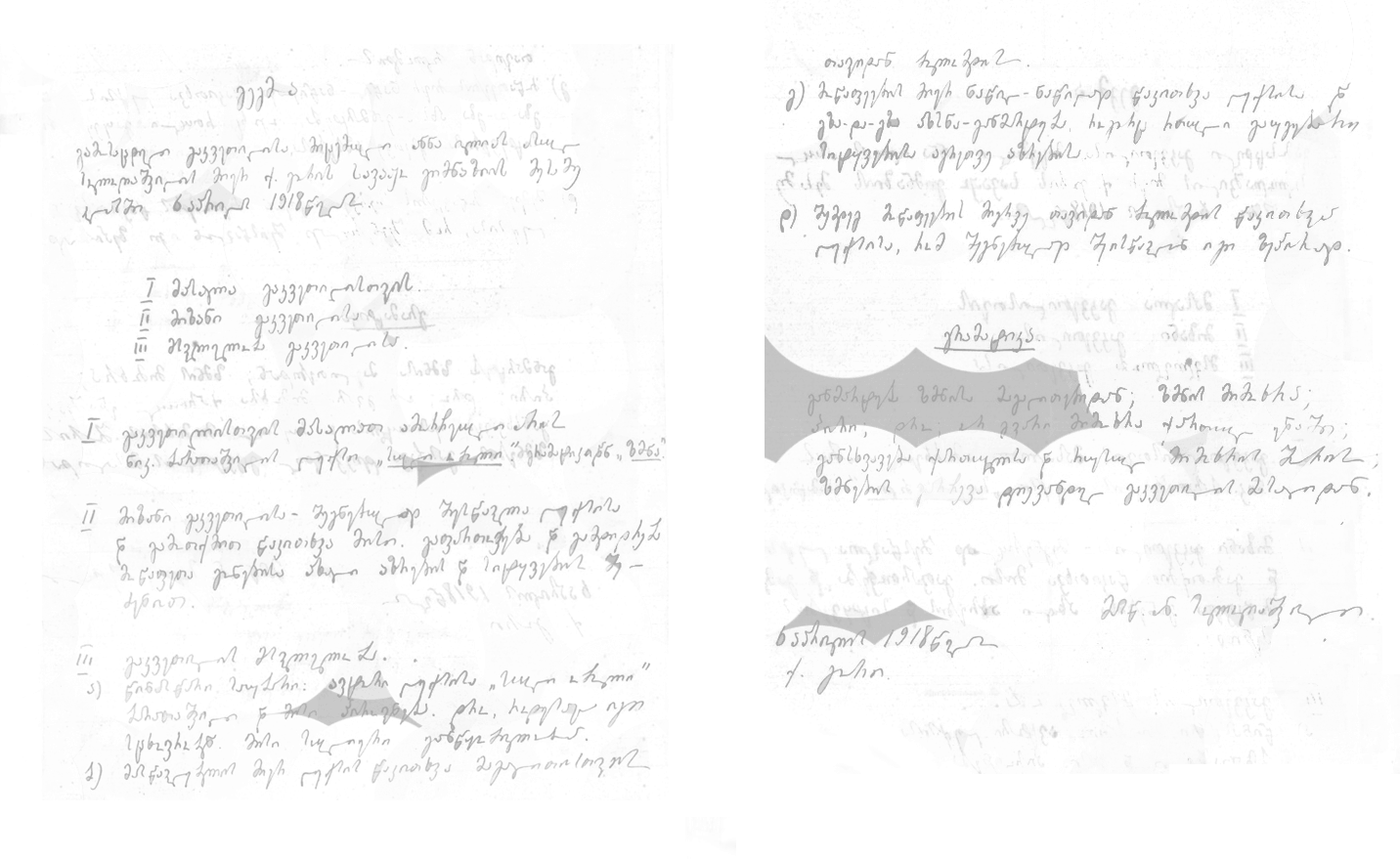

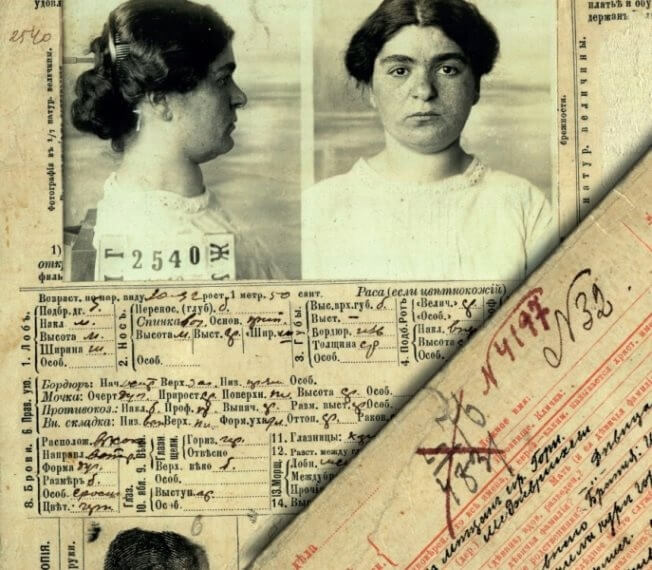
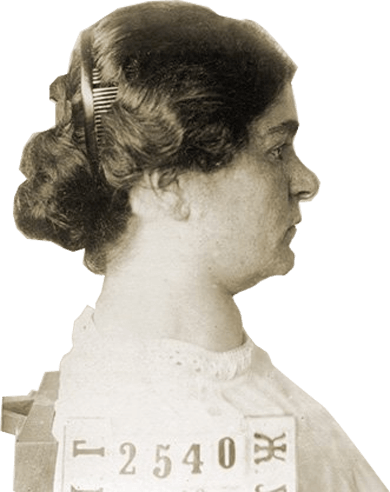
Ana (Ola ) SologhashviliAna (Ola ) Sologhashvili
Public figure, Member of the constituent assemblyPublic figure, Member of the constituent assembly
1882-19371882-1937
Biography
Member of the social-democratic party since the age of 21, was arrested several times during the reign of Russia.In 1919-21 she worked in the Library and Editorial commissions of the Constituent Assembly. From 1925, she was conducting pedagogical activities. Actively participated in the anti-Soviet movement. In 1937, she was arrested and shot by decision of "troika" of the People's Commissariat of Internal Affairs -NKVD, with the charges of anti-Soviet and anti-collective farm propaganda and "chauvinistic attitudes".

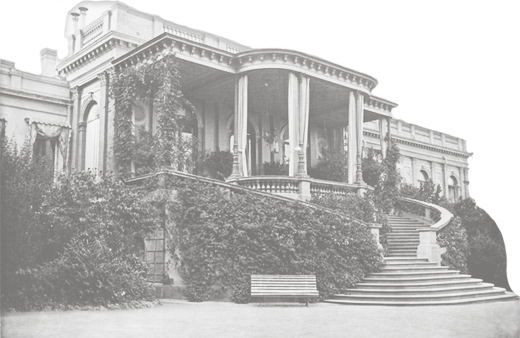

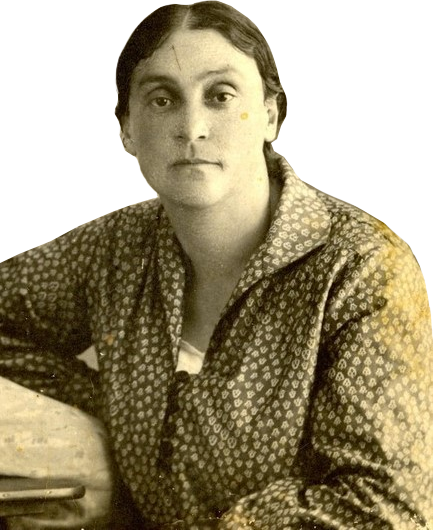
ElisabedElisabed
NakashidzeNakashidze
-Bolkvadze-Bolkvadze
Georgian politician, member of the constituent assembly. Georgian politician, member of the constituent assembly.
1885-19371885-1937
Biography
From 1904 she actively participated in the work of the Social Democratic Party. In 1917 she was elected as a chairman of the "Guria Women's Society" and since 1919 she became a member of the Labor Commission of the Constituent Assembly. For the first time, for anti-Soviet activities, at age 38, she was exiled to the Urals. In 1925, Elisabeth returned to Georgia but in a year she was still detained – first she was placed in Siberia, political – solitary confinement of Minusinski, and then was transferred to Ural and Alta.In 1937, she became a victim of a repression. She was executed in the Krasnoyarsk area for counter-revolutionary activities.



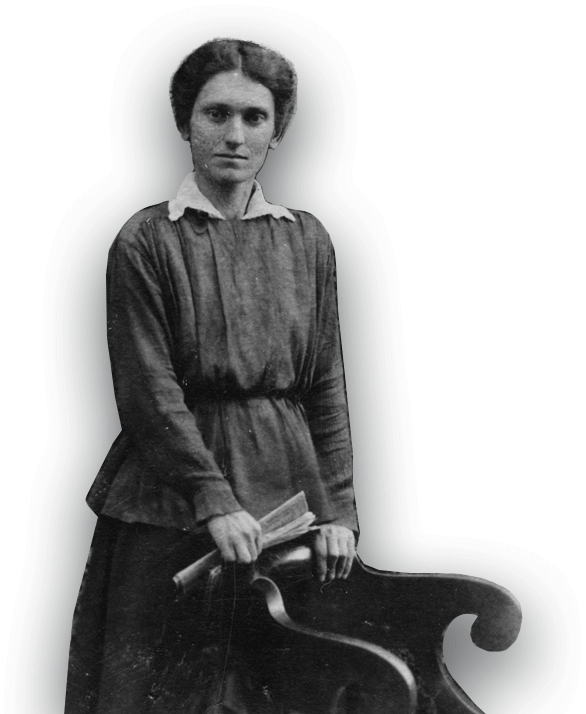
MinadoraMinadora
Orjonikidze-Orjonikidze-
ToroshelidzeToroshelidze
Public figure, Member of Constituent Assembly Public figure, Member of Constituent Assembly
1879-19671879-1967
Biography
She studied at Kutaisi Women's Gymnasium and since 1901 at the Faculty of Medicine at Geneva University. From the time of studying in Switzerland, she actively participated in the work of socialist circles.After choosing as a member of the constituent assembly she was conducted activities in Labor and Public Health Commissions. In 1921, when the Red Army entered in Georgia, she worked in the Red Cross, and then in an organization “NO” (American Relief Administration), headed women's illegal organizations and leaded active anti-Soviet activities.In 1924 she was forced to be resettled in Moscow and from 1936 to Kazakhstan. She was allowed to return to Tbilisi only after fourteen years later. While in exile she was conducting active medical practice and was working in several medical institutions.
In 1937-38, her husband and both children were shot. She died in 1967.



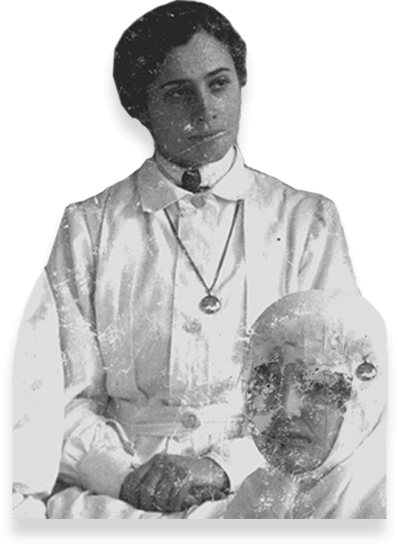

Eleonora Eleonora
Ter-Parsegova-MakhviladzeTer-Parsegova-Makhviladze
Member of Constituent AssemblyMember of Constituent Assembly
1875-Unknown1875-Unknown
Biography
Graduated from Tbilisi Women's Gymnasium Courses. From 1905 she moved to Sokhumi, where she worked as a teacher. She actively participated in revolutionary speeches in Sokhumi.She was arrested several times before 1917. In 1919-21 she was a member of labor and public health commissions of the constituent assembly. She was actively involved in anti-soviet movement. In 1925, she became a member of the Unlawful Social-Democratic Party of the Central Committee. In a year she was detained again and exiled from the country. Eleonora returned back to Georgia in 1930s and was engaged in private pedagogical activities. She passed away in the first half of the 30s at home in Tbilisi, the exact date is unknown.












